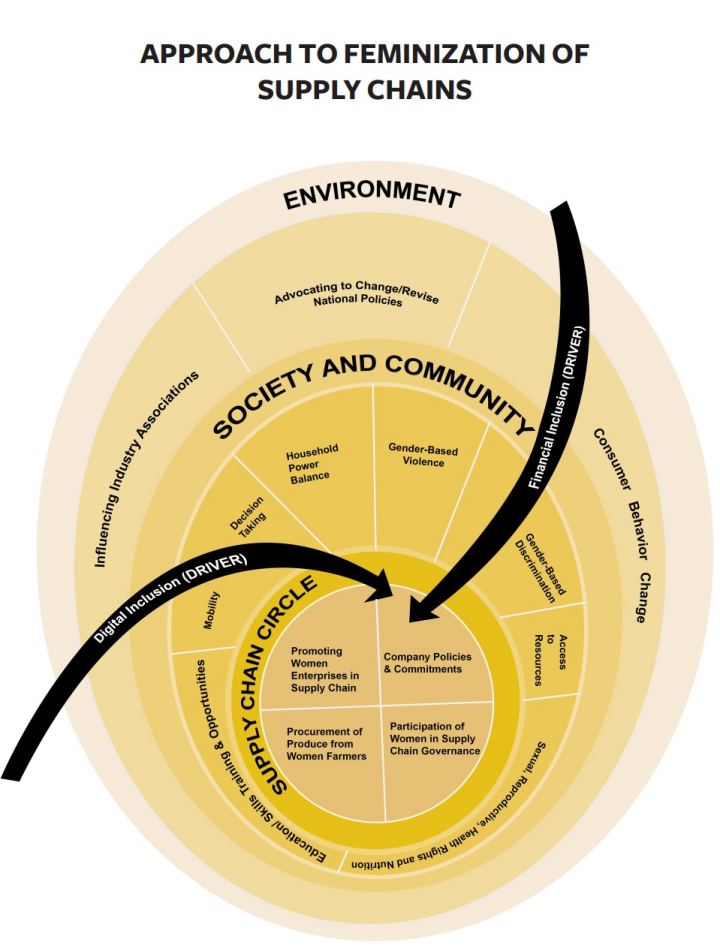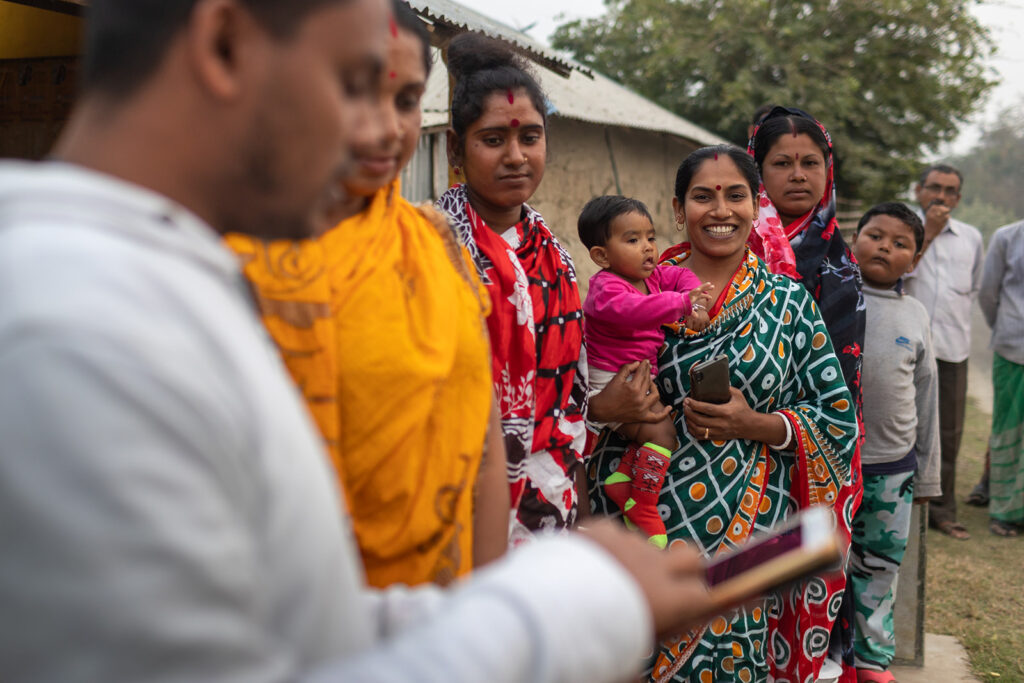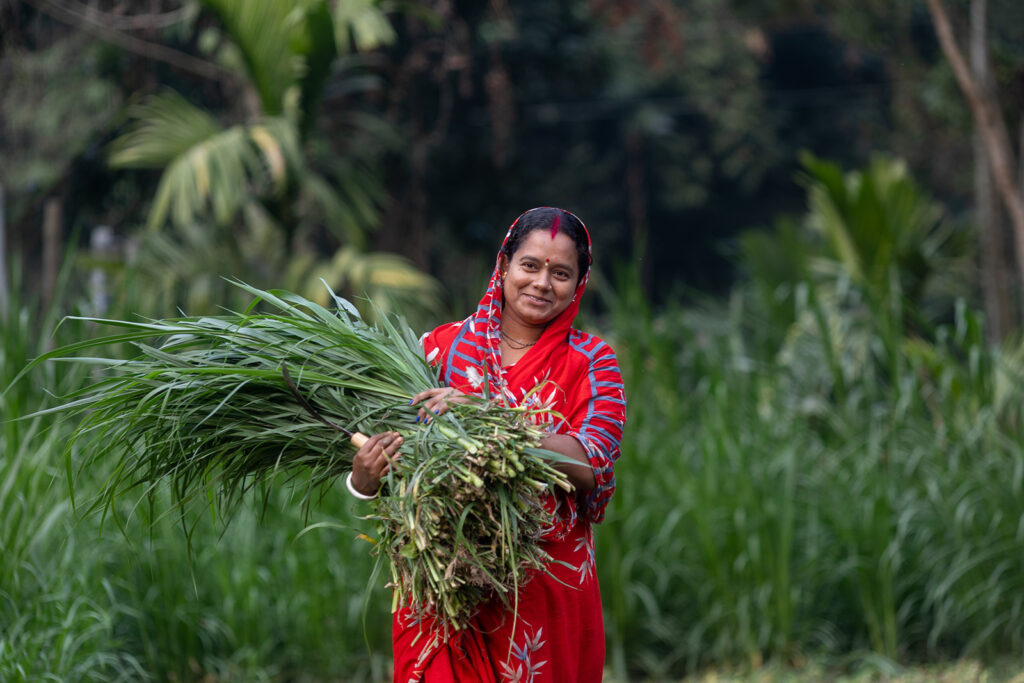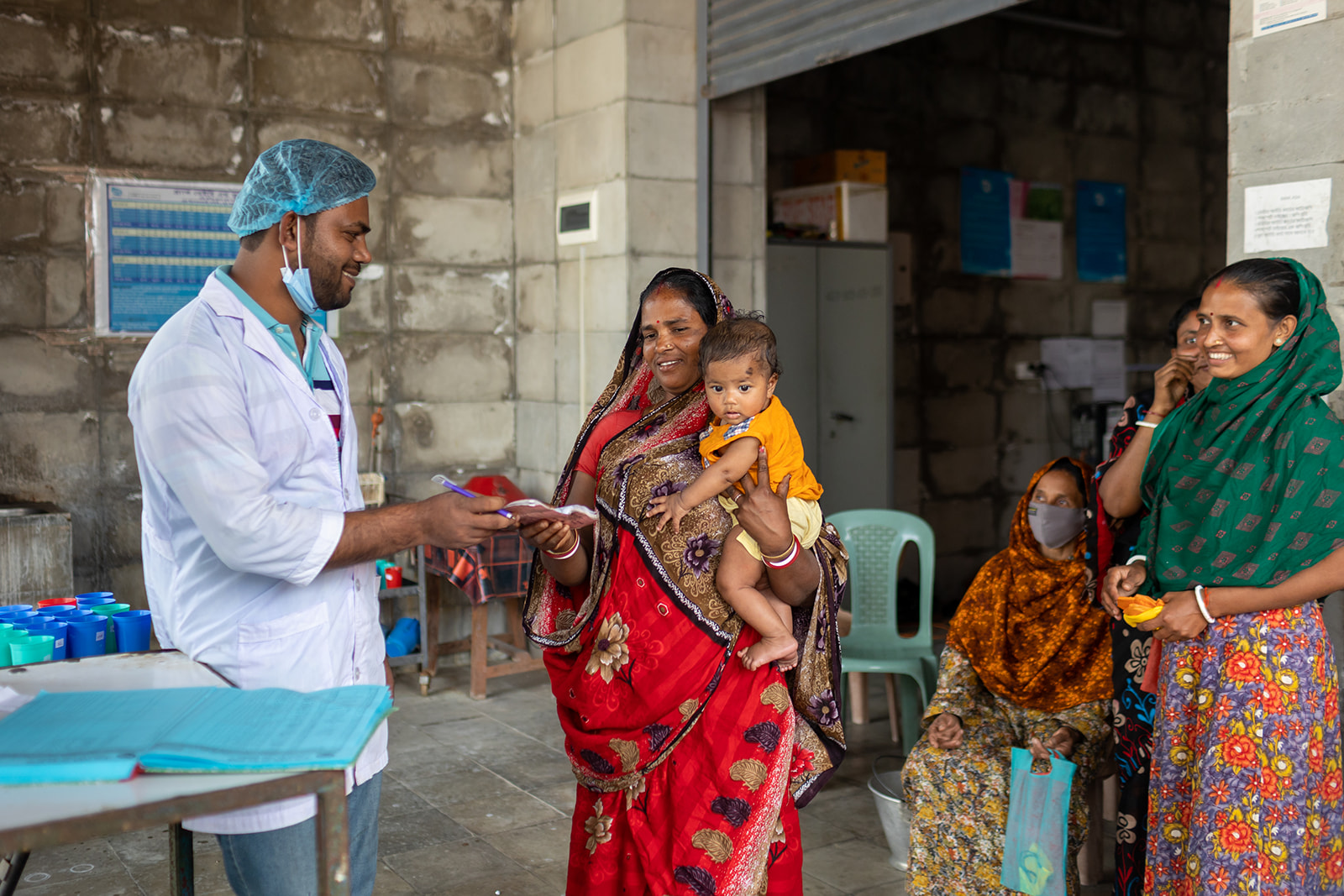Women form the backbone of agricultural systems, constituting nearly 37 percent of the global workforce (ILO, 2020). Yet, even today, they are often not recognized as farmers. To rectify this, it is important that landholding patterns and women’s socioeconomic status change for the better, especially in rural contexts. However, such a drastic transformation is likely to take decades.
At the same time, it is becoming increasingly evident that a majority of formal agricultural supply chains and public- and private-sector policies are embracing gender-blind tendencies. This often results in women’s efforts – the countless hours of tilling the soil and other allied activities – going unrecognized and unpaid. Economies of scale cannot be built without identifying and acknowledging the contributions of women and giving them a fair share in the market.
As the battle for equal agricultural land rights for men and women continues, a crucial question needs to be answered. Should women continue to be excluded from the system? Or, can alternative approaches revolutionize the agricultural sector by fostering greater inclusivity and equality?
At Solidaridad, we aim to build models that can bring about transformative change in supply chains by making them more inclusive. One such model is ‘feminisation of supply chain’.
What is the Feminisation of Supply Chain?
The ‘Feminisation of Supply Chain’ is a concept that offers a nuanced and comprehensive methodology to address the unique needs of women, particularly in rural contexts. It aims to empower women throughout the supply chain, recognizing their invaluable contributions and potential for driving sustainable change.
Across the entire supply chain – from production to retail – the conscious objective of the concept is to embrace gender diversity and promote inclusion of women at every stage.

Pathways
The Feminisation of Supply Chain model focuses on the following pathways:
- Establishing a production system that is both resilient and inclusive
- Inclusive service delivery aiming to provide equitable access for all
- Fostering inclusive market systems that benefit all

Establishing a resilient and inclusive production system
- Enrolling women in the formal supply chain: In most cases in Asia, the contracting process between farmers and entrepreneurs doesn’t allow women to be part of the contracts. Enrolling them is the first and most crucial step to ensure the participation of women in the supply chain. For instance, under one of our key programmes in Bangladesh, women dairy farmers were enrolled with the milk collection centre of a prominent milk marketing company in the country. This formalization allows women to get a better price for their milk. More importantly, payments are directly transferred to their bank accounts, giving them ownership and more say in how that money is being spent.
- Access to service and inputs: Ensuring equitable access to services and inputs is important for fostering gender equality throughout the supply chain. To achieve this, it is essential to advocate for policies and initiatives that promote equal access to services and inputs, regardless of gender. This can involve working with government bodies, industry associations, and relevant stakeholders to develop guidelines and regulations that explicitly prohibit gender-based discrimination. Furthermore, targeted programmes and initiatives should be implemented to provide women with the necessary support and resources. These can include education and training, mentorship and networking, provision of infrastructure and technology, and awareness and advocacy.
- Access to financial services: It is necessary to promote access to financial services, including loans, grants, and microfinance options, specifically tailored to women entrepreneurs and workers in the supply chain. This can help women overcome financial barriers and enable them to invest in their businesses or procure necessary inputs.
Inclusive service delivery that provides equitable access to all
This can primarily be achieved through the promotion of women-led enterprises in the supply chain, via:
- Supplier diversity programmes: There is a need to encourage companies to implement supplier diversity programmes that prioritize sourcing from women-owned businesses. This can create more opportunities for women entrepreneurs to access markets, gain visibility, and secure contracts for supplying goods and services. One such example is Solidaridad’s intervention in India where women soybean farmers have come together to sell their produce collectively to a leading soybean procurement company. This has led to a win-win situation where the company is assured of a certain quality and quantity of soybeans and women receive better market prices for their produce.
- Capacity-building and skills development: Providing training and organizing capacity-building programmes to enhance the skills and knowledge of women entrepreneurs are a must. It can include training and upskilling on digital literacy, technology adoption, leadership skills, and innovation.
- Support and promote women entrepreneurs: The ultimate goal should be to foster a supportive ecosystem for women entrepreneurs – by collaborating with incubators, accelerators, and entrepreneurship-support organizations. These entities can provide guidance, resources, and infrastructure to help the entrepreneurs succeed.
Fostering inclusive market systems that benefit all
To achieve the objective of integrating women throughout the supply chain, it is crucial for companies to move beyond mere acknowledgement and make strong commitments to concrete action. The commitments should involve:
- Policy change
- Dedicated budget allocation
- Tangible, measurable actions on the ground
In addition to advocating for policy changes to ensure inclusivity, the focus should also be on obtaining specific commitments from companies to address gender-related issues within the supply chain. These commitments should be tied to actionable goals and timelines, ensuring that progress is consistently monitored and achieved. Additionally, advocacy for the allocation of dedicated resources and budget to support the implementation of these commitments is crucial. This financial investment will enable the company to actively address the barriers and challenges faced by women in the supply chain.

All have a role to play
The Feminisation of Supply Chain model counts on four enablers: the government, industry associations, community members and consumers. Solidaridad acknowledges the importance of exerting influence on government departments and industrial associations to drive policy changes and corrective actions within existing structures and systems. Without these efforts, the intended transformation within the sector, as envisioned by this model, cannot be fully realized.
If there is to be change, sustained acceptance of the model by both private and public organizations is non-negotiable. By promoting community participation, we create inclusive and democratic processes that empower individuals, strengthen social cohesion, and lead to more effective and sustainable outcomes for the community as a whole. Consumer awareness also plays a crucial role in creating pressure on the private sector to adopt responsible and sustainable practices.
Feminisation of the supply chain embraces gender diversity and inclusion of women at every stage of the supply chain, from production to retail – because to revolutionize agriculture, women’s active participation as drivers of change is critical.

